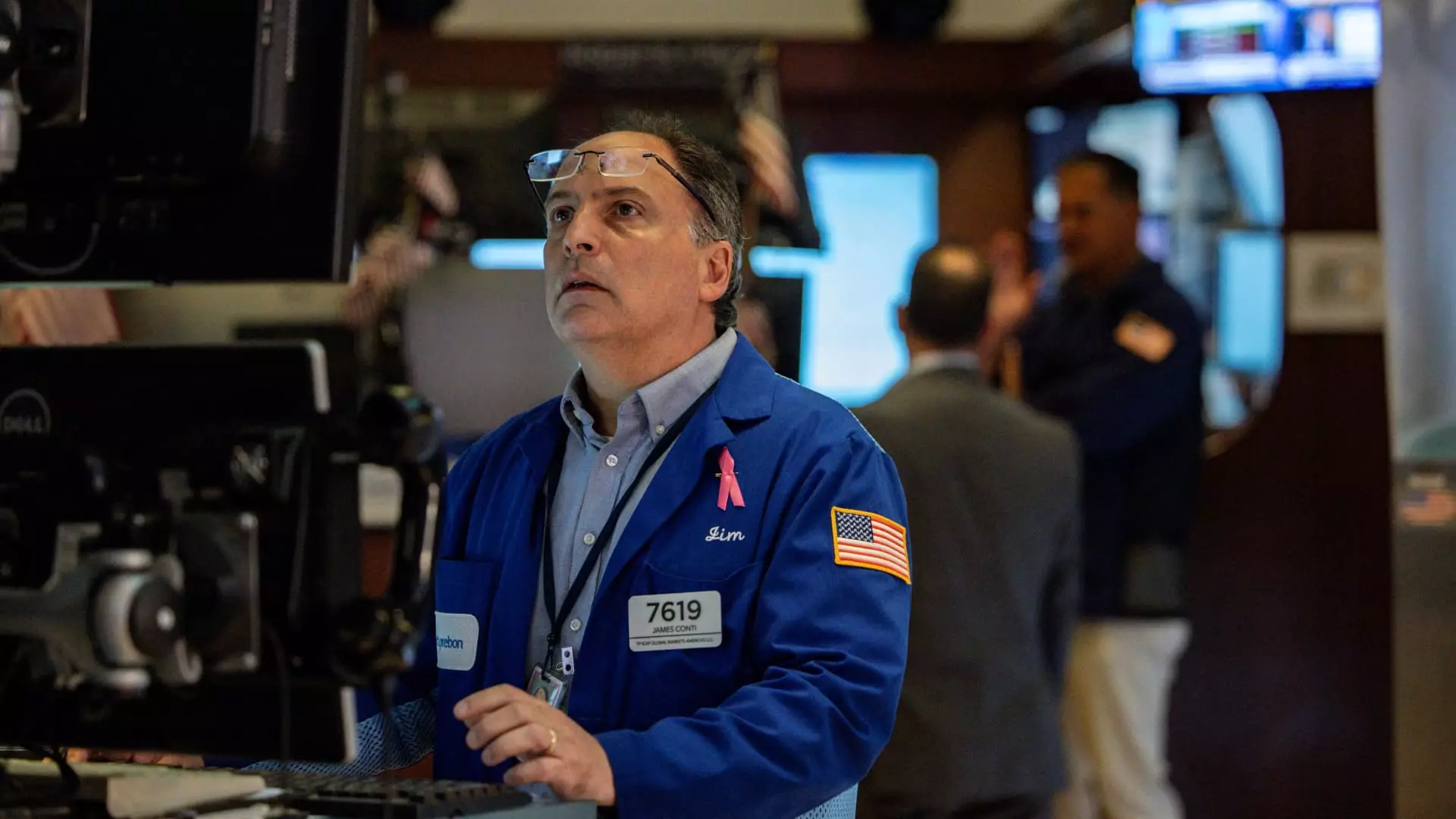Financial markets, often perceived as bastions of stability, faced a brutal awakening last week. Investors had begun to believe that resilience characterized the current economic climate, buoyed by recent record highs and seemingly controlled trade rhetoric. However, this illusion unraveled almost overnight as a new wave of tariffs and aggressive trade language reignited fears of a prolonged global economic conflict. The sudden downturn in major indices signals a deeper malaise—a profound loss of confidence in leadership’s ability to steer the global economy clear of turmoil. Markets are not merely reacting to the numbers; they are sensing a larger narrative of uncertainty, escalation, and leadership instability at play.
Trade Wars: The False Promise of Protectionism
President Donald Trump’s announcement of a 35% tariff on Canadian goods, linked to the contentious issue of fentanyl, sparked chaos. The initial impression that tariffs might act as leverage or protective measure crumbled under the weight of reality: protectionism often breeds more hostility, not economic stability. Instead of fostering cooperation, these aggressive tariffs risk deepening global divides, hurting consumers, and destabilizing supply chains. The government’s rhetoric and actions are reminiscent of a zero-sum mindset that dismisses the interconnectedness of modern economies. This approach is shortsighted—meant to appeal to nationalist sentiments but ultimately destructive when it compromises the foundational principles of free trade and mutual benefit.
Market Euphoria Versus Economic Reality
While traders initially brushed off tariffs as manageable irritations, the subsequent market decline underscores a stark truth: optimism is fragile. The previous days’ gains, driven partly by false confidence, quickly evaporated when new threats emerged. The Dow slipping over 279 points, and the S&P 500 dipping below record levels—these declines are not mere technical adjustments. They are symptoms of an underlying crisis of confidence that stems from the administration’s unpredictable trade posture. The markets, often considered as leading economic indicators, mirror our mounting fears that without mature diplomacy, economic stability cannot be guaranteed. Investors are now faced with the reality that trade tensions may not just be temporary shocks but an ominous sign of deeper systemic vulnerability.
The Consequences for Global Cooperation and Economic Stability
What is particularly alarming is the lack of clarity surrounding the president’s future plans. The silence on European Union tariffs and the vague promises of “higher tariffs across the board” reveal a leadership more eager to flex muscles than to foster constructive international relations. This stance damages diplomatic trust and threatens to ignite a domino effect—where retaliatory measures become unavoidable, dragging multiple economies into chaos. The weight of these propositions may be appealing to domestic political audiences craving strength, but they pit countries against each other in a harmful competition that stifles innovation, inflates costs, and hampers growth. The risk here is a downward spiral, where trade conflicts evolve from policy debates into economic crises.
Assumption of Control in a Chaotic Environment
Underlying these developments is a dangerous assumption: that tariffs and tariffs alone can control complex issues like drug flows or global supply chains. This simplistic view ignores the reality of global interconnectedness—that economic problems are rarely solvable through tariffs alone. In fact, weaponizing trade policies often worsens the issues they aim to fix, while also igniting unpredictable geopolitical consequences. Market participants are increasingly aware that leadership’s reliance on aggressive trade tactics is a gamble—one that could backfire and dramatically destabilize markets further.
An Uncertain Future for Investors and Policymakers
As the week unfolds, the spotlight shifts to earnings reports and inflation data—yet beneath these numbers lies an undercurrent of doubt. Investors are now questioning whether the current market rally is sustainable or just a fleeting illusion sustained by optimistic narratives that ignore mounting risks. The center of the political spectrum calls for measured pragmatism—policies rooted in diplomacy, cooperation, and long-term stability. If the current path persists, however, it risks a future where economic growth is persistently hamstrung by fears of trade wars, retaliations, and leadership miscalculations. This political moment demands maturity, not bravado—a lesson the markets will painfully learn if tariffs and aggressive rhetoric continue to take center stage.

